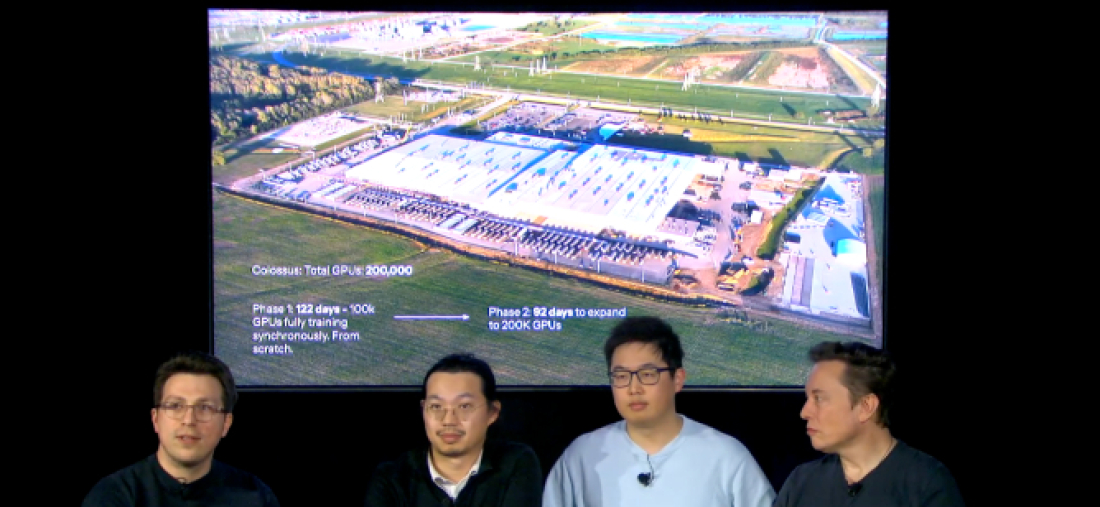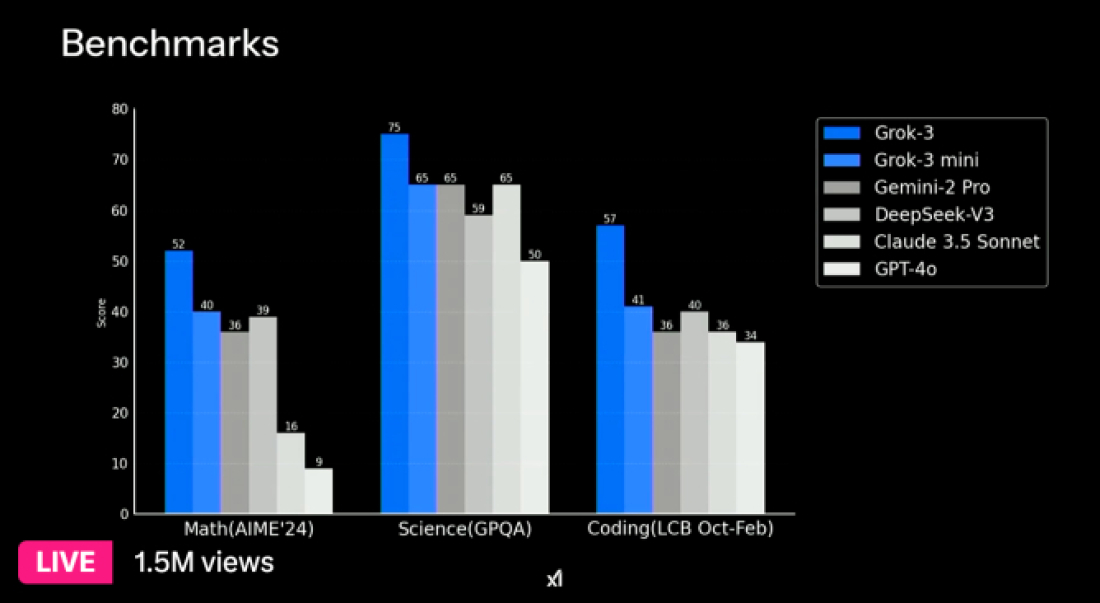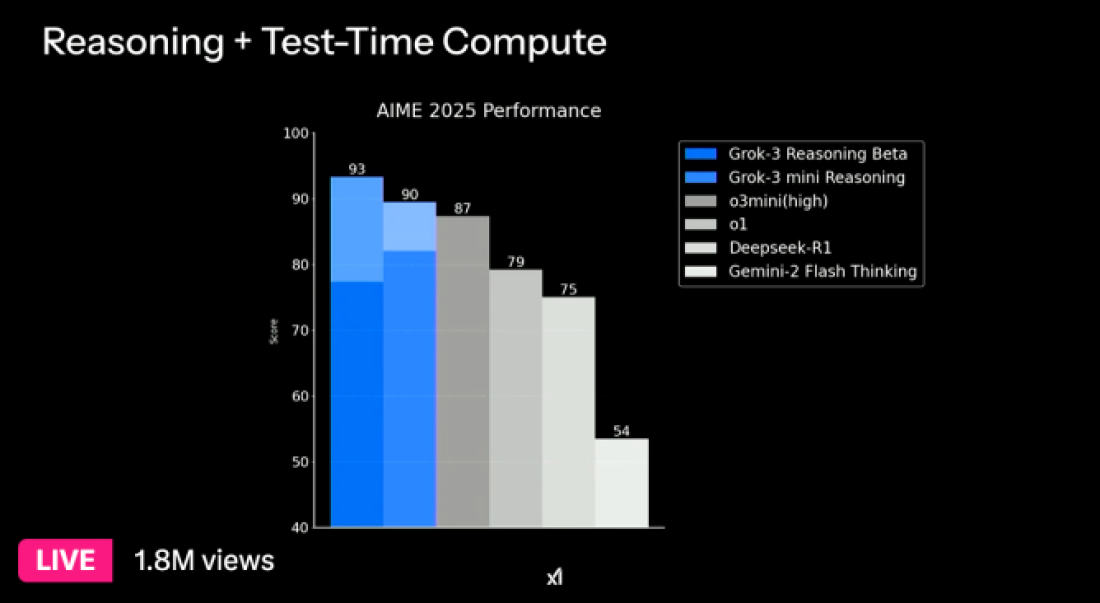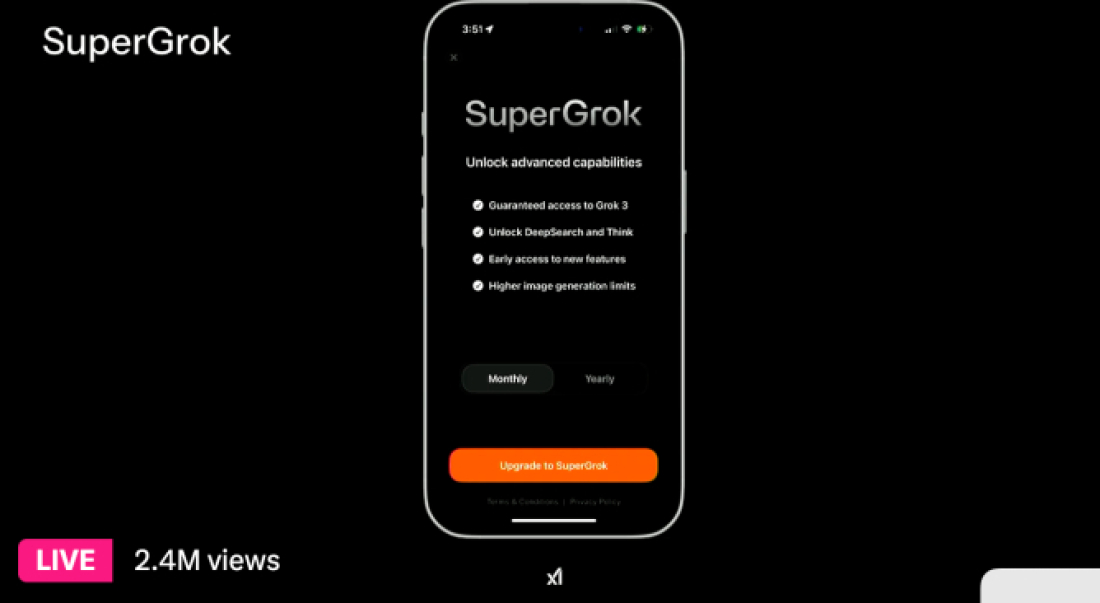Turkmenistan plans Brussels visit as EU revives long-stalled partnership deal
Turkmenistan is preparing for a presidential visit to Brussels as the European Parliament considers ratifying a partnership agreement that has been st...
February 23, 2025 – Elon Musk’s AI company, xAI, has launched its latest flagship AI model, Grok 3, unveiling new capabilities for its Grok iOS and web applications.
Grok 3, positioned as a competitor to OpenAI’s GPT-4o and Google’s Gemini, offers enhanced reasoning capabilities and image analysis, further integrating with Musk’s social network, X.
Grok 3: enhanced AI capabilities
Grok 3 has been in development for months and was initially slated for release in 2024 but experienced delays. The model was trained using an enormous data center in Memphis containing approximately 200,000 GPUs. According to Musk, the new model was developed with “10x” more computing power than its predecessor, Grok 2, leveraging a more extensive training dataset, including legal filings.

“Grok 3 is an order of magnitude more capable than Grok 2,” Musk stated during a live-streamed presentation. “[It’s a] maximally truth-seeking AI, even if that truth is sometimes at odds with what is politically correct.”
Grok 3 model variants and features
The Grok 3 family includes multiple versions:
Grok 3 mini: Offers faster response times at the cost of some accuracy.
Grok 3 Reasoning & Grok 3 mini Reasoning: Designed to carefully “think through” problems, similar to OpenAI’s o3-mini and DeepSeek’s R1. These models aim to fact-check themselves before responding, improving accuracy.
Grok 3 is currently rolling out in phases, with some features still in beta. The new models reportedly outperform GPT-4o in AI benchmarks such as AIME (mathematics performance) and GPQA (graduate-level science questions). Additionally, xAI claims that Grok 3 Reasoning surpasses OpenAI’s o3-mini-high in mathematics assessments, including AIME 2025.

New capabilities: DeepSearch and Reasoning enhancements
The reasoning models power DeepSearch, xAI’s AI-powered research tool, which scans the internet and X to generate detailed abstracts in response to user queries. Users can activate Grok 3’s enhanced reasoning through:
“Think” mode: For complex questions requiring deeper analysis.
“Big Brain” mode: A high-compute setting designed for advanced problem-solving.
To prevent unauthorized knowledge extraction, xAI has partially obscured the reasoning models’ thought processes in the Grok app. This measure follows recent controversies, such as DeepSeek’s alleged distillation of OpenAI models.

Subscription tiers and upcoming features
Grok 3 will first be available to X Premium+ subscribers ($22/month), while advanced features will require a new SuperGrok plan, reportedly priced at $30/month or $300/year. This premium tier grants additional reasoning queries, DeepSearch access, and unlimited image generation.

Upcoming enhancements include:
Voice Mode (within a week): A synthesized voice for Grok models.
Enterprise API Access (within weeks): xAI will offer Grok 3 and DeepSearch via API for business integration.
Future Open-Source plans and political neutrality pledge
Musk announced that xAI intends to open-source Grok 2 in the coming months, following a pattern where previous models are made public once new versions become stable.
“When Grok 3 is mature and stable, which is probably within a few months, then we’ll open-source Grok 2,” Musk confirmed.
Grok was initially marketed as an “edgy” and “unfiltered” AI model that could answer controversial questions other models avoided. However, past versions hedged on political topics, with one study suggesting a left-leaning bias on issues such as transgender rights and diversity programs. Musk has attributed this to training data limitations and has pledged to shift Grok toward greater political neutrality. Whether xAI has achieved this goal remains unclear, but the company continues to push boundaries in AI development.
As Grok 3 rolls out, its real-world performance and reception will determine its place in the competitive AI landscape.
Cuba’s fuel crisis has turned into a waste crisis, with rubbish piling up on most street corners in Havana as many collection trucks lack enough petrol to operate.
Iran’s Revolutionary Guards navy held military exercises in the Strait of Hormuz on Monday (16 February), state-linked media reported. The drill took place a day before renewed nuclear negotiations between Tehran and Washington in Geneva.
Ruben Vardanyan has been sentenced to 20 years in prison by the Baku Military Court after being found guilty of a series of offences including war crimes, terrorism and crimes against humanity.
Canadian Prime Minister, Mark Carney, announced on 16 February that the Honourable Janice Charette has been appointed as the next Chief Trade Negotiator to the United States. She's been tasked with overseeing the upcoming review of the Canada-United States-Mexico Agreement (CUSMA).
The Pentagon has threatened to designate artificial intelligence firm Anthropic as a “supply chain risk” amid a dispute over the military use of its Claude AI model, according to a report published Monday.
ByteDance will take steps to prevent the unauthorised use of intellectual property on its artificial intelligence (AI) video generator Seedance 2.0, the Chinese technology firm said on Monday.
The formation of a black hole can be quite a violent event, with a massive dying star blowing up and some of its remnants collapsing to form an exceptionally dense object with gravity so strong not even light can escape.
BMW is recalling a mid six figure number of vehicles worldwide after identifying a potential fire risk linked to the starter motor.
British chipmaker Fractile will invest £100 million over the next three years to expand its artificial intelligence hardware operations in the UK, opening a new engineering facility in Bristol as it ramps up production of next-generation AI systems.
The European Union has launched its largest semiconductor pilot line under the European Chips Act, investing €700 million ($832 million) in the new NanoIC facility at IMEC in Leuven, Belgium, as part of efforts to strengthen Europe’s technological sovereignty.
You can download the AnewZ application from Play Store and the App Store.

What is your opinion on this topic?
Leave the first comment